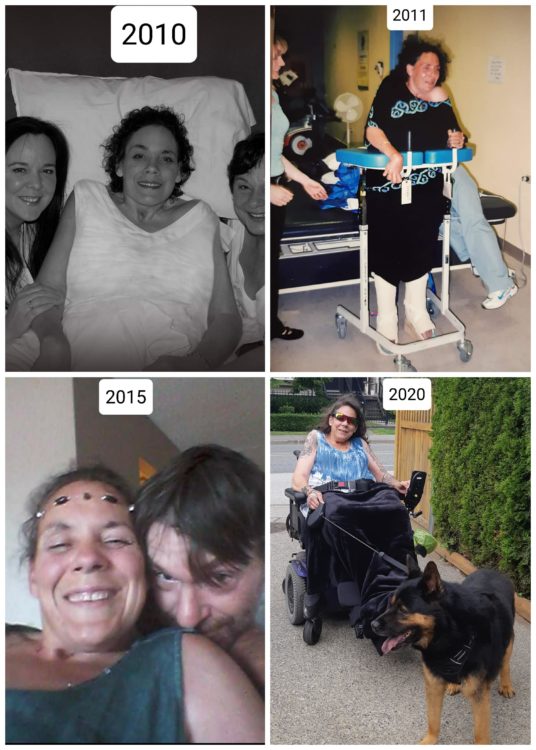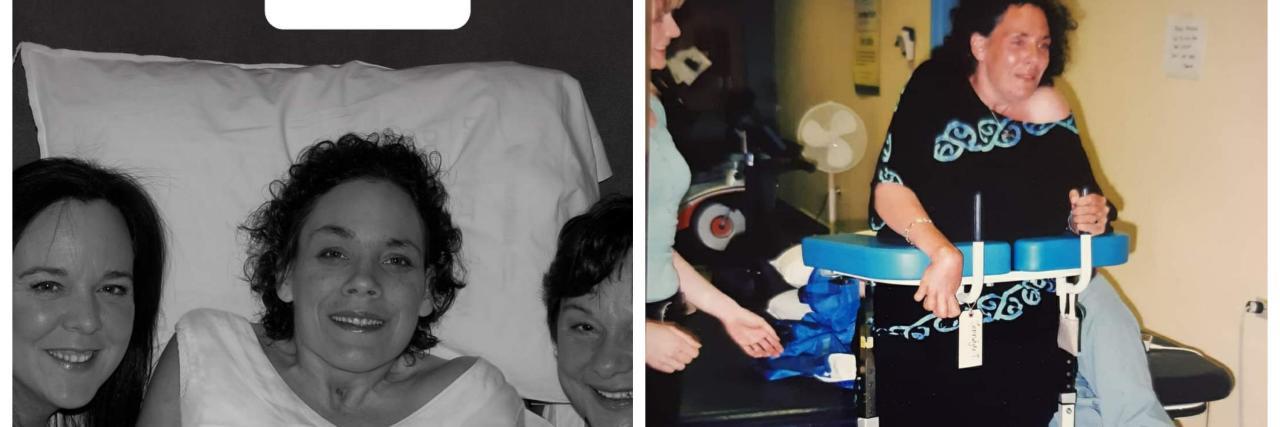“I’m so proud of you because you never gave up!”
“You inspire me because you never gave up!”
“You are so strong and brave. And you never gave up!”
These are some of the things people have said to me since my illness and subsequent disability. In the past, I truly appreciated the validation, and loved that my story inspired and empowered others. But upon hearing the words “you never gave up,” a pang of guilt would lance through my heart, and I would think “If they only knew…”
If they only knew about the six to eight months of laying in the hospital, confined to bed, staring endlessly at the ceiling, broken, hopeless, weepy, raging, refusing therapy, lashing out at everyone and wanting to die. I even took matters into my own hands by trying to pull out my tracheostomy. After the third try, the doctors began talking to my family about signing a DNR because I had obviously given up.
If they only knew about those weeks of stagnancy a few months after arriving at the group rehab home. I had been hospitalized for 18 months, and been through intensive rehab for 10 weeks, and was now in a less intensive program designed to reintroduce me to the community. I realized I still had such a long way to go to recover, and all my loved ones had gone back to their own lives. Also, all but one of the other ABI clients in the home had limited cognitive ability, and it frustrated and depressed me to be around them. (I was new to the world of disability, and still had 38 years of ableism to unlearn). I fell back into a deep depression, isolating myself, avoiding the other clients, putting off therapy sessions or half-heartedly going through the motions, and drowning reality in hours of Netflix binge-watching.
If they only knew about the first year in my permanent residence, a Family Care home (my own suite inside a caregiver’s home of a family of four). This is when I realized I would never fully recover, that I will be disabled and need a power wheelchair for the remainder of my life. The life I had known and the body I had taken for granted was forever gone. Because of my care needs, and my husband’s own limitations, I could not return to live with my husband, and I feared I would always be dependent upon strangers for everything. I was difficult and demanding, weepy and apathetic, detached and indifferent. Afraid of causing grief for my loved ones, I fantasized about ways I could die without doing it myself. It felt like I had given up then, too.
In time, I began to adapt to my new body and new life. I attempted new things and ventured out on my own. As I discovered my abilities and improved my independence, my confidence grew and my attitude changed. My body grew stronger and my mental health improved. When the fog of depression lifted and the phantoms of trauma faded, I began to see much more clearly. I could process my experiences in healthy ways, understand my emotions and behaviors, and thus continue to grow.
Now, I can look back and see that in those moments of desolate depression, hopelessness, and utter lack of motivation I once felt was “giving up” was actually “giving in.” No matter how strong, brave and resilient anyone is, there is only so much a person can manage, (especially when there is little to no progress), before their psyche needs a rest. Unfortunately, under these kind of extreme circumstances, that “rest” often comes in the form of a breakdown. But that doesn’t mean you’ve given up. You’ve simply succumbed to the extreme circumstances you are unaccustomed to fighting through. When your car overheats and spews steam as you sit idle on the shoulder of the road, it doesn’t mean the car is dead and will never run again. It means it needs a rest, a cool down period and some water.
Today, I acknowledge those moments with a spirit of kindness to myself. Not all of our reactions to trauma, disability and mental illness are healthy, but they do serve a purpose, whether we’re conscious of it or not. I recognize that my reactions in those moments were unhealthy, even dangerous, but they may have been my psyche’s way of resting, giving in to the mounting pressure to heal, process, cope, rehabilitate and maintain sanity all at once under circumstances that were frustratingly far beyond my control.
I made it through each of those dark times, and continued to strive for as much recovery and independence as possible. Over 10 years ago, I was paralyzed, bed-confined, and vision-impaired, with an oxygen-fed tracheostomy, feeding tube, and a catheter inside adult diapers. Today, I live relatively independently with the help of a caregiver, free of machines (except my power wheelchair), and happily busy with creative projects, a strong marriage, and a fulfilling connection to the disability community as an advocate.
Giving in is not the same as giving up, and I never really did give up!


